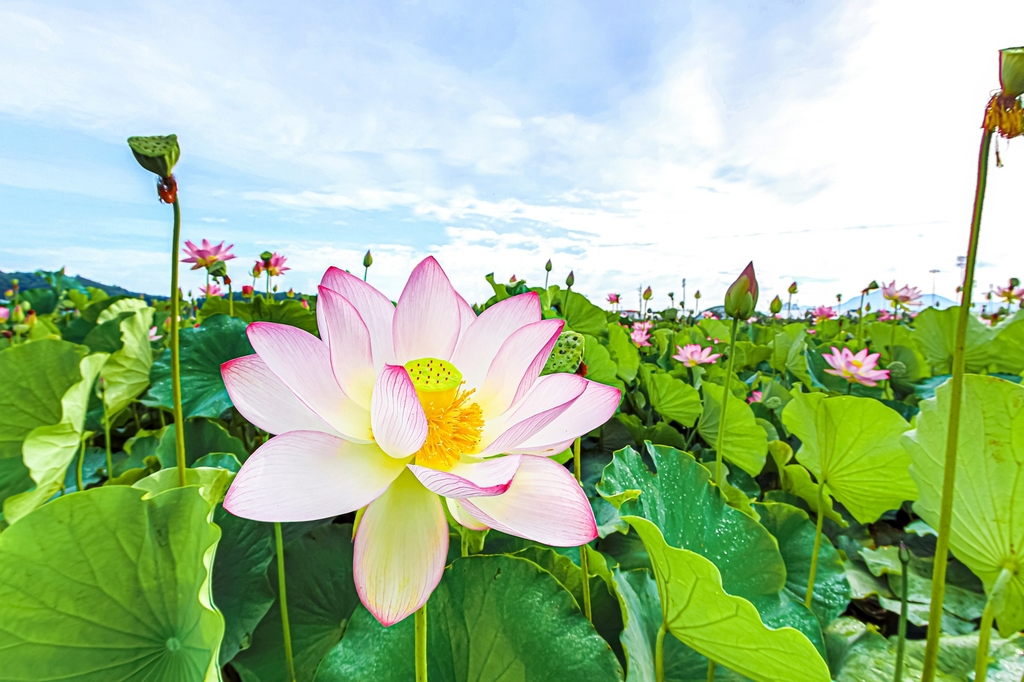 |
Ara Hongryeon (Haman County Office) |
An exhibition of lotuses is to take place at the Sejong National Arboretum in Sejong City.
The Korea Arboreta and Gardens Institute announced on Friday its plan to host "Special Exhibition on 700 years of Ara Hongryeon," a showcase of historical Korean lotuses Ara Hongryeon and Beopsu Hongryeon from June 13 to July 31.
Ara Hongryeon refers to red lotuses that blossomed from seeds that were discovered during the excavation of Seongsansanseong Fortress in Haman County, South Gyeongsang Province in 2009. Carbon dating showed that the lotus seeds, which eventually germinated and bloomed, date back to the Goryeo Kingdom, approximately 700 years ago.
Beopsu Hongryeon is a native Korean variety commonly found in Haman County. It is the same type as the red lotus dating back to the Silla Kingdom. It can be found in the Anapji Pond in Gyeongju, North Gyeongsang Province. Gyeongju was the capital of Silla.
The special exhibition also presents a pond adorned with 10 types of Korean aquatic plants, including Asian water plantain and Lesser cattail, in harmony with red lotuses.
Lee Yoo-mi, the head of the Sejong National Arboretum, expressed optimism regarding the exhibition's positive impact, stating, "Through this special exhibition that delves into the history of Haman County, we aim to emphasize the importance of preserving Korean native plants."
Photo exhibitions featuring Ara Hongryeon and ancient tombs in Haman Malisan will also be held in the Palace Garden and the lobby of the Four Seasons Exhibition Greenhouse, respectively, until July 9.







![[Today’s K-pop] Blackpink’s Jennie, Lisa invited to Coachella as solo acts](http://res.heraldm.com/phpwas/restmb_idxmake.php?idx=644&simg=/content/image/2024/11/21/20241121050099_0.jpg)